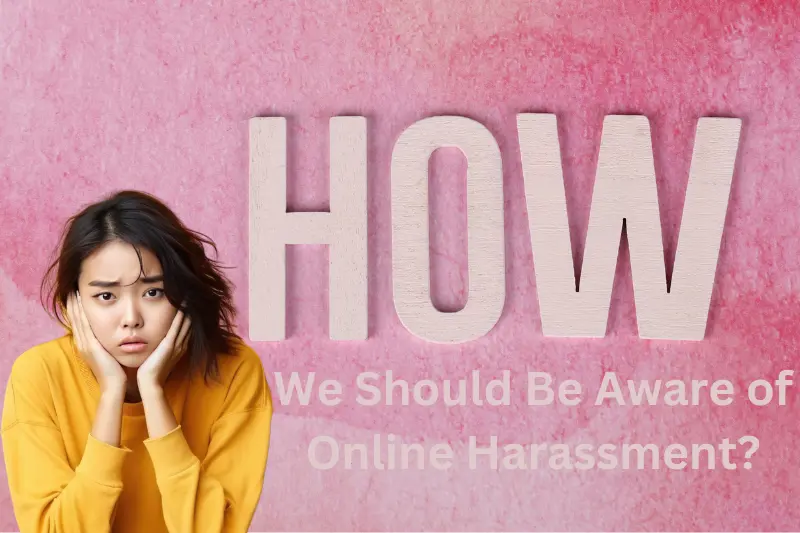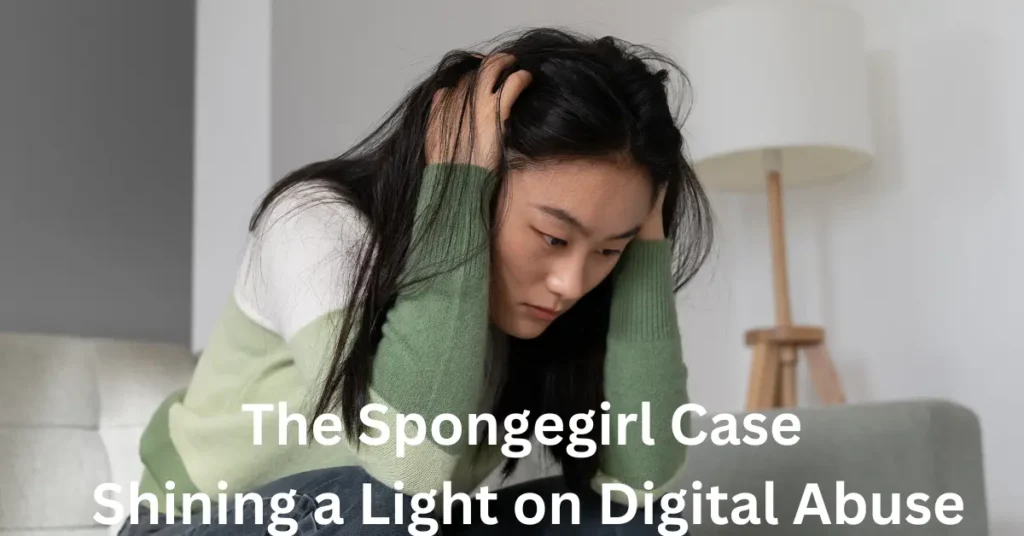Introduction:
In the digital age, where the internet has become an integral part of our daily lives, the issue of online harassment has become increasingly prevalent and pervasive. The Spongegirl Case is a prime example of the devastating impact that such harassment can have on individuals.
This high-profile incident has highlighted the urgent need to address this growing problem and create a safer, more inclusive online environment for all.
What is The Spongegirl Case?

The Spongegirl Case refers to a disturbing incident of online harassment in 2023, involving a young woman known only as “Spongegirl.” She was subjected to a relentless campaign of abuse, threats, and personal attacks across various social media platforms.
Despite her attempts to address the situation and seek help, the harassment only continued to escalate, leading to severe emotional distress and even concerns for her physical safety.
How Did “The Spongegirl Case” Happen?
The Spongegirl Case began with a seemingly innocuous social media post by the young woman. However, this benign act quickly spiralled into a targeted campaign of harassment, with a group of online trolls subjecting her to a barrage of insults, personal attacks, and even graphic threats of violence.
The anonymity and lack of accountability provided by the internet enabled the perpetrators to continue their abusive behaviour with impunity, causing immense trauma and anguish for the victim.
Case Study: “The Spongegirl Case”
The Spongegirl Case serves as a harrowing case study of the devastating impact that online harassment can have on an individual. The victim, a promising young professional, found her personal and professional life completely disrupted by the constant stream of abuse and threats she faced.
The psychological toll was immense, leading to debilitating anxiety, depression, and a profound sense of violation and vulnerability. Her ability to function in her daily life was severely compromised, and she struggled to maintain her sense of safety and self-worth.
How We Should Be Aware of Online Harassment?
The Spongegirl Case highlights the urgent need for greater awareness and understanding of online harassment. It is a stark reminder that the internet, while a powerful tool for connection and communication, can also be a breeding ground for abuse, cruelty, and malicious behaviour.

We must confront this issue head-on and develop multifaceted strategies to protect vulnerable individuals, hold perpetrators accountable, and foster a more responsible and empathetic online culture.
FAQs
What is online harassment?
Online harassment is any abusive, threatening, or unwanted behaviour directed towards an individual or group through digital platforms, such as social media, messaging apps, forums, or email. This can include cyberbullying, stalking, doxxing (the non-consensual release of personal information), and the creation and dissemination of non-consensual intimate content (often referred to as “revenge porn”).
How common is online harassment?
Online harassment is alarmingly prevalent, with studies showing that a significant percentage of internet users have experienced some form of online abuse or harassment. This issue affects people of all ages, backgrounds, and identities, though specific demographics, such as women and LGBTQ+ individuals, tend to be disproportionately targeted.
What are the effects of online harassment?
The psychological and emotional impact of online harassment can be devastating. Victims often experience severe anxiety, depression, low self-esteem, and even suicidal thoughts. The effects can also extend to their personal and professional lives, leading to social withdrawal, disruption of daily routines, and damage to relationships and career opportunities. In some cases, the harassment can even pose a threat to the physical safety of the victim.
What should I do if I’m being harassed online?
If you are experiencing online harassment, it is crucial to document the incidents by taking screenshots, saving messages, and keeping a detailed record of the abusive behaviour. Report the harassment to the relevant social media platforms or authorities, and seek support from trusted friends, family members, or professional counselling services. Remember, you are not alone, and resources are available to help you navigate this difficult situation.
How can I support someone who is being harassed online?
If you know someone who is being harassed online, offer your empathy and emotional support. Encourage them to report the harassment and seek help from appropriate resources, such as online safety organizations or mental health support services. You can also help by amplifying their voice and raising awareness about the issue of online harassment, thereby challenging the culture of abuse and promoting a more compassionate online community.
Can online harassment be prevented?
While it is difficult to completely prevent online harassment, steps can be taken to mitigate its occurrence and impact. These include improving platform moderation and enforcement measures, implementing stricter policies against abusive behaviour, promoting digital literacy and responsible online conduct, and fostering a culture of empathy, kindness, and mutual respect in the digital space.
Is online harassment illegal?
In many jurisdictions, certain forms of online harassment, such as stalking, threats, or the non-consensual sharing of personal information, are considered illegal. However, the legal landscape surrounding online harassment is complex and can vary depending on the specific laws and regulations in place. It is important to familiarize yourself with the relevant laws in your area and seek legal advice if you believe you are a victim of unlawful online harassment.
Where can I get help if I’m experiencing online harassment?
If you are experiencing online harassment, various resources are available to you, including online safety organizations, mental health support services, and legal aid. These organizations can provide guidance, counselling, and assistance in addressing harassment and protecting your rights. It is important to seek help and not suffer in silence, as addressing the issue head-on is crucial to your well-being and safety.
Conclusion: Creating a Safer Digital World
The Spongegirl Case serves as a stark reminder of the urgent need to address the issue of online harassment. By raising awareness, promoting digital responsibility, and strengthening support systems for victims, we can work towards creating a safer and more inclusive online environment for all. Our collective responsibility as members of the digital community must ensure that the internet becomes a space where people can connect, express themselves, and thrive without fear of harm or abuse.
Extra Tips to Be Aware of Online Harassment:
1. Educate yourself and others about the different forms of online harassment, such as cyberbullying, stalking, doxxing, and revenge porn. Understanding the scope of the problem is the first step toward addressing it.
2. Foster open conversations about online safety, especially with younger generations, and encourage responsible digital citizenship. Empower individuals to be advocates for a kinder, more compassionate online culture.
3. Advocate for stronger platform policies and enforcement measures to address abusive behaviour online. Hold social media companies and other digital service providers accountable for the safety and well-being of their users.
4. Support initiatives and organizations that provide resources and assistance to victims of online harassment. Donate, volunteer, or spread awareness about the vital work they do.
5. Be an active bystander. If you witness online harassment, report it and offer support to the victim. Your actions can make a significant difference in mitigating the harm.
6. Promote empathy, kindness, and respect in all online interactions, setting a positive example for others and challenging the normalization of abusive behaviour.
7. Encourage the development of digital tools and technologies that prioritize user safety and privacy and the implementation of robust content moderation systems.
8. Engage with policymakers and lawmakers to ensure that legal frameworks keep pace with the evolving landscape of online harassment, providing better protection and recourse for victims.
By taking these steps and remaining vigilant, we can work towards creating a safer and more inclusive digital world for all.
You may also like this:
What Is λιβαισ? Unraveling the Mystery
TrendzGuruji.me – Computer, Cyber, Awareness, SEO, Health & Beauty
